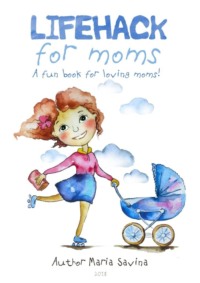Kitabı oku: «Lifehack for Moms. A fun book for loving moms!», sayfa 3
Bir şeyler ters gitti, lütfen daha sonra tekrar deneyin
Türler ve etiketler
Yaş sınırı:
16+Litres'teki yayın tarihi:
18 kasım 2020Hacim:
241 s. 19 illüstrasyonISBN:
9785005176424Telif hakkı:
Издательские решения
